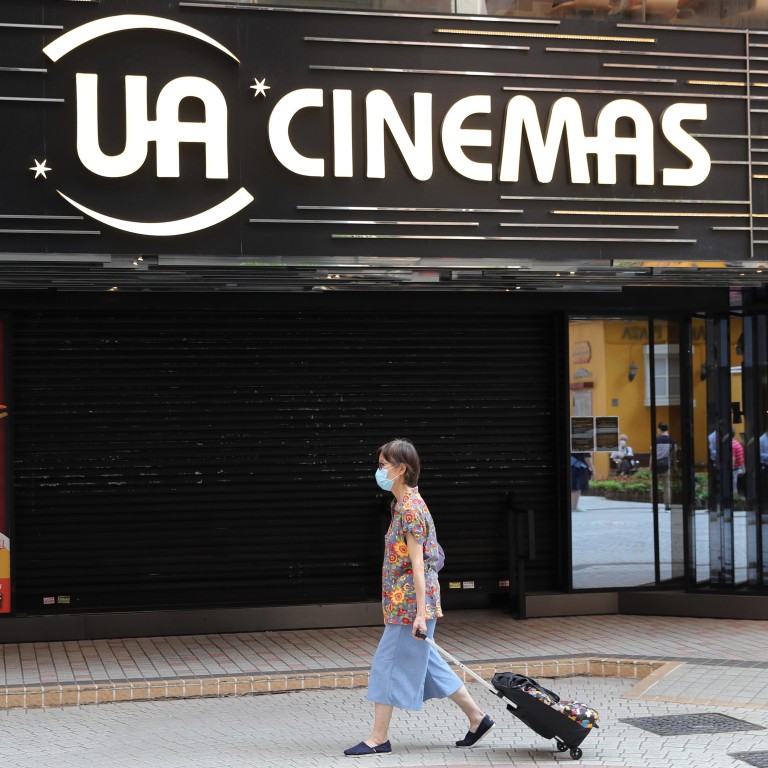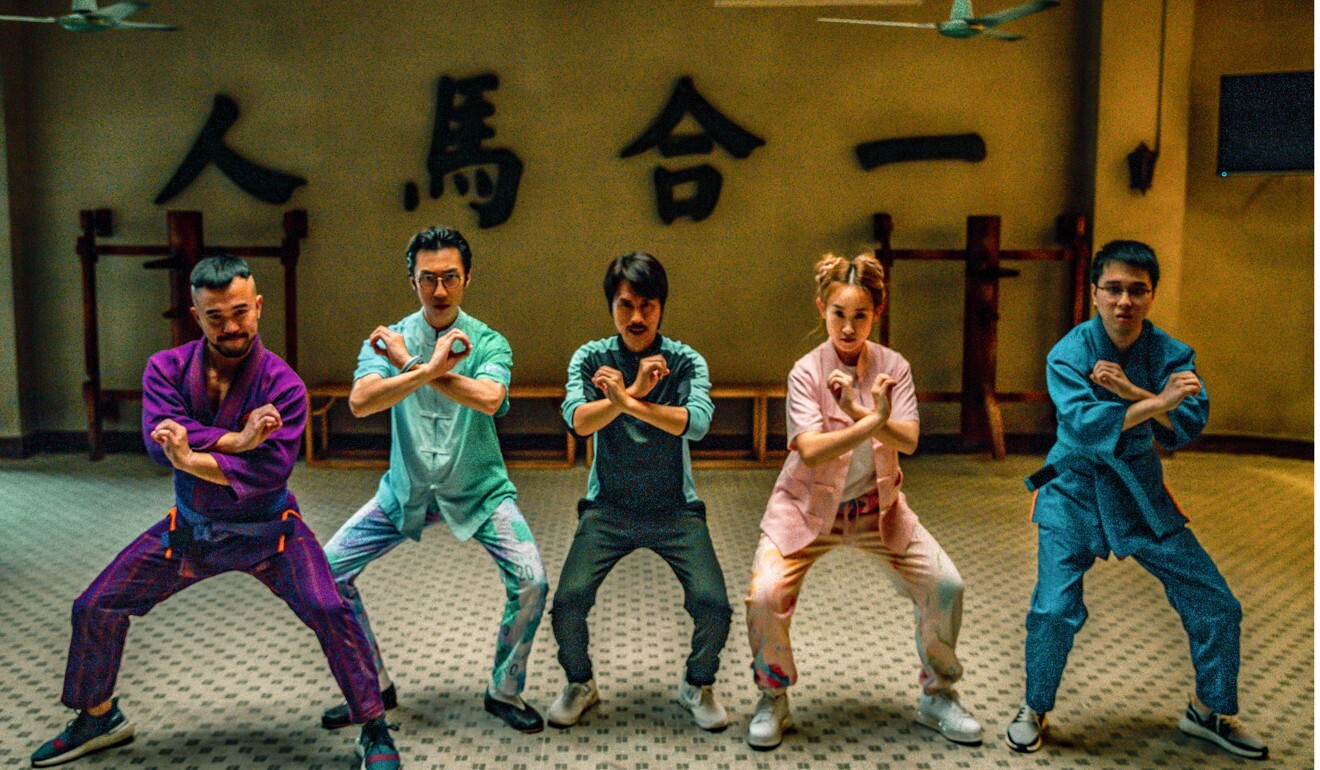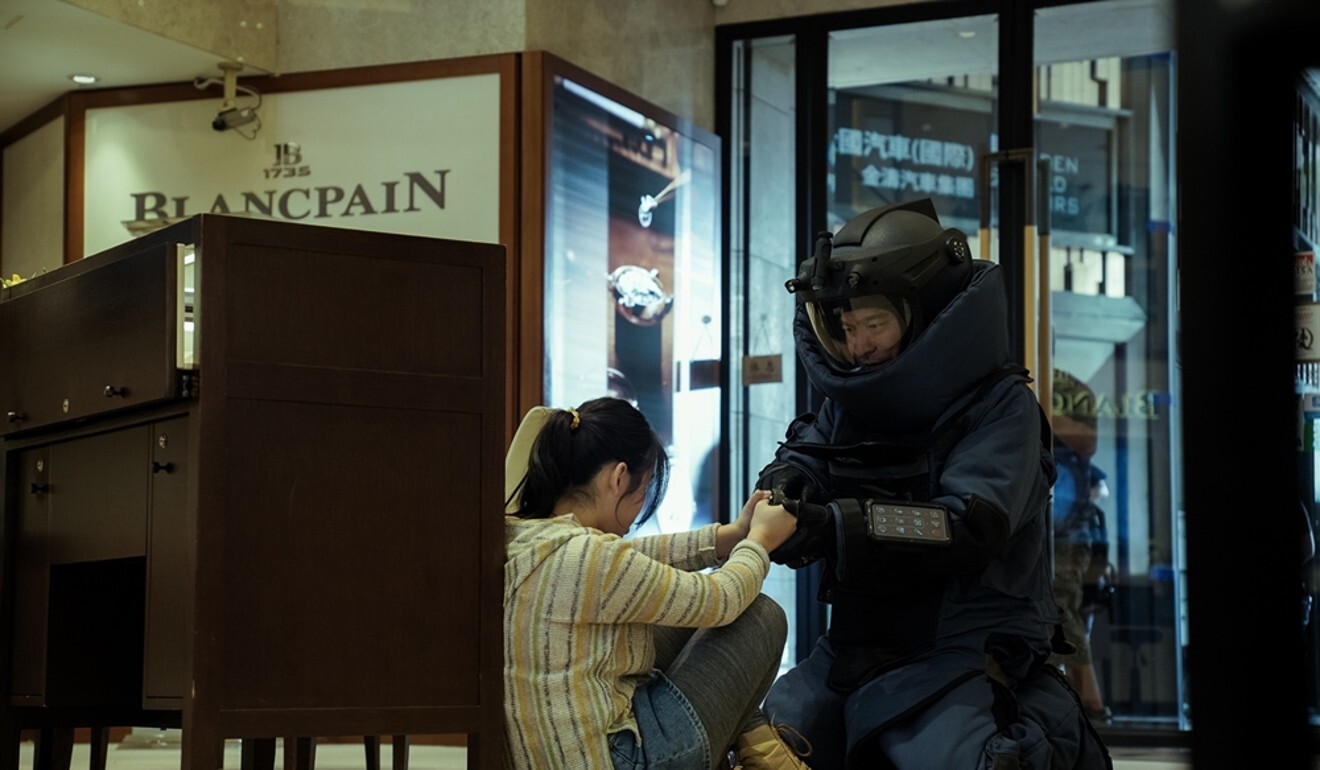
Bleak outlook for Hong Kong film industry as Covid-19 keeps cinemas shut and fewer movies are made
- Box office takings fell 72 per cent to HK$537 million last year, as cinemas closed for 116 days
- Glimmer of hope in producing films for mainland Chinese audiences, say industry veterans
Industry players expecting another bleak year ahead say the only hope now is to make films that appeal to mainland Chinese audiences.
“This year will be miserable for domestic films if they only focus on the local market. Losses are inevitable,” said Crucindo Hung Cho-sing, chairman of the Hong Kong Motion Picture Industry Association.
The city’s cinemas saw their takings plunge by 72 per cent to HK$537 million (US$69.27 million) last year, from HK$1.92 billion in 2019, according to Hong Kong Box Office Ltd.

With each wave of Covid-19 infections, the government ordered cinemas to close three times for varying periods last year, keeping them shut for a total of 116 days. Cinemas remain closed under current restrictions.
Fewer new films opened last year too. The total fell by a third to 218, from 319 in 2019, with only 34 Hong Kong productions, down from 49 the year before.
Tenet, a Hollywood science fiction action-thriller, was last year’s highest-grossing title, taking HK$54.9 million at the box office. Among Hong Kong films, kung fu comedy The Grand Grandmaster performed best, grossing HK$29.5 million, followed by low-budget mystery-romance Beyond The Dream, which earned about HK$15.3 million.

No longer ‘Hollywood of the East’
In its heyday in the 1980s and early 1990s, when Hong Kong was dubbed the Hollywood of the East, more than 200 films were churned out every year and the city was the world’s second-biggest movie exporter.
Those days are gone, and Hung said the Chinese market was now the only way out for local filmmakers, especially through co-productions that can be distributed as domestic films in Chinese cities.
“It is impossible for local titles to make money in Hong Kong. They have to rely on the Chinese market for survival,” he said.
Cinema attendances on the mainland bounced back through the second half of last year as it brought its Covid-19 outbreak under control.
Over the recent three-day New Year holiday, mainland cinemas raked in a record 1.29 billion yuan (US$199 million), surpassing the previous record of 1.27 billion yuan for the same period in 2018.
Two mainland films were the top performers on New Year’s Day. A Little Red Flower, about two families and their battle against cancer, grossed 246 million yuan, while the comedy Warm Hug made more than 160 million yuan. Hong Kong action film The Shock Wave 2 starring Andy Lau came third with 92.92 million yuan.
Coronavirus hits and misses in roller-coaster year for Hong Kong
Hung pointed to the mainland’s 1.4 billion people in emphasising the potential there for Hong Kong movie makers.
“The mainland’s movie market is very strange and unpredictable,” he said. “Even a low-budget film on some offbeat topic can become a big hit. So the China market has become the dream factory for filmmakers to flex their muscles.”
Hung said local filmmakers keen to roll out low-budget productions could look to the Greater Bay Area, which comprised Hong Kong, Macau and nine cities in Guangdong that Beijing aimed to turn into a technological and economic powerhouse.
A host of measures exist to help the city’s filmmakers tap the bay area, with various restrictions on issues including the key creative personnel, cast and plots being eased.
Veteran filmmaker John Chong Ching, who produced famous Hong Kong films such as the Infernal Affairs trilogy, agreed with Hung and said Covid-19 has had only a minor impact on big-budget co-productions released on the mainland.
For co-productions, Hong Kong filmmakers face the challenge of having limited creative freedom
“Hong Kong cinemas have become the biggest casualty as they have been forced to shut on-and-off for a long time last year, causing a lot of delays to many movie screenings,” he said.
“But for co-productions which rely on the market for generating at least 70 per cent of their revenue, many moviemakers have been actively rolling out projects and preparing pre-production work.”
However, Chong said there was a formula for success, and Hong Kong co-productions that did well on the mainland were usually crime-related action thrillers rather than romance or art house films.
Prominent culture critic Jimmy Pang Chi-ming doubted that Hong Kong-mainland co-productions were the way to go, saying the mainland authorities still had a lot of restrictions that affected the creativity of filmmakers.
Last year, for example, they tightened censorship of movie content, extending bans on plots centred on ghosts, gay love and time travel, and indicated that romance films should avoid being “overly sweet”.
“For co-productions, Hong Kong filmmakers face the challenge of having limited creative freedom which easily compromises their film’s quality,” he said.

‘Hard to shoot street scenes now’
To support the stricken industry, the Hong Kong government earmarked about HK$260 million last year under the Film Development Fund to increase the number of local productions, nurture young directors and scriptwriting talent and provide more training opportunities.
In three rounds of the HK$300-billion Anti-epidemic Fund, the government also provided one-off subsidies to cinemas ranging from HK$50,000 to HK$100,000 per screen in each tranche.
Since early last year, about 30 local productions have been completed or are being filmed, including eight subsidised by different schemes under the Film Development Fund.
Veteran producer and actor Tenky Tin Kai-man, chairman of the Federation of Hong Kong Filmmakers, said the city’s movie industry remained mired in uncertainty because of the pandemic.
“Before a new film is released, the movie company needs to spend HK$300,000 to more than HK$1 million on promotion and advertising. Last year, many releases were disrupted by the sudden closure of cinemas and a lot of money went down the drain,” he said.
What will post-Covid-19 Hong Kong look like? Young artists offer their insight
Plans were made for the Andy Lau movie The Shock Wave 2 to open in Hong Kong at Christmas, he said, but the city’s cinemas were ordered closed in early December.
“We have no idea when cinemas can reopen,” he said.
The pandemic has also affected moviemaking in the city. “It is difficult for filmmakers to shoot street scenes in Hong Kong as the pedestrians are all wearing masks. Uncertain factors like these have turned off film investors,” he said.
Tin said he has been actively lobbying investors to bankroll more projects as many frontline production workers have been out of job for a long time. Hong Kong’s culture industries, which includes film production, employed 217,280 people, or 5.6 per cent of the city’s total workforce in 2018.
“Amid all this pessimism, I believe there’s a great demand for feel-good, happy films which promote positive energy,” he said.
Tin admitted that the trend of streaming films online via media platforms such as Netflix, iQiyi.com and Tencent Video, had also posed a challenge to filmmakers.
“Film investors need to rethink how to adjust film distribution to make sure they can still make money from this trend and at the same time attract cinema-goers too,” he said.

